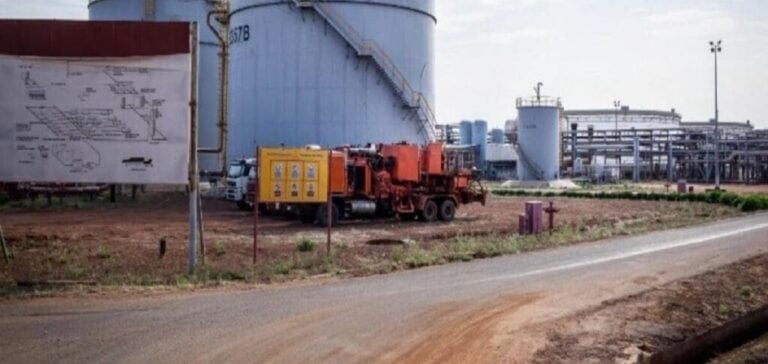Oil production, a cornerstone of South Sudan’s economy, resumes on January 8 after a year-long interruption caused by the rupture of the pipeline linking the country to Sudan. This restart, announced by the Minister of Petroleum Puot Kang Chol, marks a critical step in addressing the severe economic challenges that include the collapse of the local currency and rampant inflation.
The affected oil blocks, 3 and 7, are operated by the Dar Petroleum Operating County (DPOC), which accounts for 70% of the national production. The initial target is set at 90,000 barrels per day over the next six months, significantly below the 150,000 barrels per day produced prior to the shutdown.
Economic and Geopolitical Context
South Sudan’s economy, which depends on oil for 90% of its exports, has suffered massive losses due to the interruption. The situation was further aggravated by geopolitical tensions with Sudan, its neighbor, where the pipeline passes through militarized zones.
Negotiations that facilitated this restart involved both governments and industry partners. On January 4, Sudan officially lifted its “force majeure” declaration, paving the way for operations to resume.
Structural Challenges for the Oil Sector
While this resumption provides temporary economic relief, major challenges persist. South Sudan has often been criticized for mismanagement of oil revenues, which are frequently diverted for political purposes. Transparency International ranks the country among the most corrupt globally, complicating the prospects for sustainable foreign investment.
Moreover, its reliance on Sudanese infrastructure leaves its economy vulnerable to recurring disruptions. The lack of economic diversification further limits the young nation’s resilience options.
Energy Prospects and Strategic Issues
The gradual return to production could revitalize exports and attract new industrial partners. However, authorities must ensure transparency in revenue management and foster a stable business environment. The political, economic, and social implications of this resumption will be critical in assessing its real impact.






















